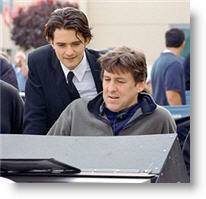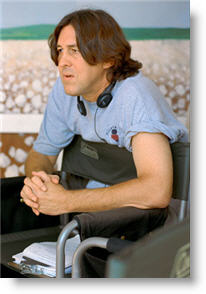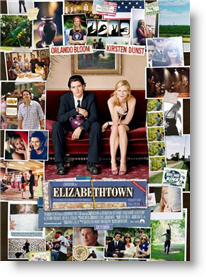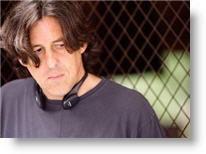Personal interview with Writer/Director Cameron Crowe of “Elizabethtown” (2005)

by Jonathan Wooten
Contributor
Perhaps Cameron Crowe should run for governor. As I talk to the cast and crew of his new film “Elizabethtown”, no one has a bad word to say about him. Fawning and reverence are not uncommon on a movie press junket, but this is getting ridiculous. Actress Paula Dean describes him as “everything that you would want your son to grow up to be.” Judy Greer gushes that acting classes are a waste of time, and everyone should just work with him instead. Kirsten Dunst calls him “a great man.” “He’s so open and sensitive—and emotionally invested in everything he does, which can be the best thing and also can be really difficult sometimes.”

As I interview Mr. Crowe, it becomes clear why he has earned the reputation as an engaging, all-around good guy. Smiling and dressed in jeans and a T-shirt, he ambles into the room and introduces himself simply as “Cameron.” This is after all, an Academy Award winning screenwriter (“Almost Famous”) and a director with quite an impressive resume (“Jerry Maguire”, “Say Anything”). “Elizabethtown” has many of the elements of these previous films: young love, a family coping with the absence of a father, a male struggling to meet the expectations placed upon him… the requisite killer soundtrack is also present).
In a nutshell, Drew (Orlando Bloom) is a hotshot executive at a successful shoe company. After making a huge blunder, he is fired and publicly labeled as a failure. Things only get worse when he gets a late night call informing him that his father has just died unexpectedly. So, things aren’t going well for this guy, but he is in luck because he is about to meet stewardess/savior Claire (Kirsten Dunst) on the flight back to his hometown in Kentucky.
It is a personal story for Cameron (his father died of a heart attack in 1989 while visiting family in Kentucky). He talks about the film’s personal nature and the decision to film on location:
After “Almost Famous” [a tribute to both music and his mother], I was asked a lot: What about your dad? What was he like? This was really a love letter to my dad and Kentucky. That part of the country. I thought, let’s really celebrate it and go there. I don’t think we would have made the movie if they had said “you cannot go to Kentucky.” They did try and say that! But we cut the budget and some of us cut our salaries… there is no place in Pasadena that looks like Kentucky.
About the goal of the film:
So often we have those blinders that happen because of our job or economics or family and the need to just work-work-work. And if the story and movie, like some of my favorite stories, just brings the blinders out a little bit for a short period of time, then that seemed like a worthy goal for the movie. Embracing family, friends, and others and putting positivity in the world and all that other stuff is sometimes cheesy to talk about, but I love it when a story can touch you in that way.
Crowe’s films often deal with the subject of sex and intimacy early in a couple’s relationship. I compliment him on how he shows the repercussions and consequences of this and ask him why other filmmakers treat it differently:
I have a personal theory (and I guess I put it in this movie, and it’s a little bit in “Jerry Maguire”), and that’s that a great kiss is as memorable and timeless as a lot of the stuff that follows it. I always like it in the old movies when they couldn’t show any more than the kiss—so they’d make the kiss great. It is such an intimate moment and I like honoring that.
Sleeping together and stuff is often done flippantly, and unless that’s the story, it’s kind of good to give it the weight. Because as time goes by, that stuff only becomes more important in your life, and what you’ve shared is even more indelible. So be true to it in a movie.
Music is used as more than just a soundtrack in the film. Cameron talks about the significance of a mix CD given to Drew by Claire:
The music was important… as a great mix CD does, it sort of sends you little messages. It whispers in your ear a little bit. It kids you, and hopefully says I love you, a little bit. And what’s great about a mix CD, that it’s always got deniability attached. You can just say “oh, that’s just the song” “that wasn’t me, that was the record.”
When asked about how, over and over again, he has been able to skillfully capture young love on the screen, Crowe dodges the compliment with typical self deprecating humor:
It’s time to move on man; it’s time to move on. This was sort of the last glimpse back at first or second love. I do like that first stage of love, when you stay up all night talking on the phone, and all that stuff, but now we have kids and are at that other stage of life and romance, and now I really want to write about that.
See our review page on “Elizabethtown”.

